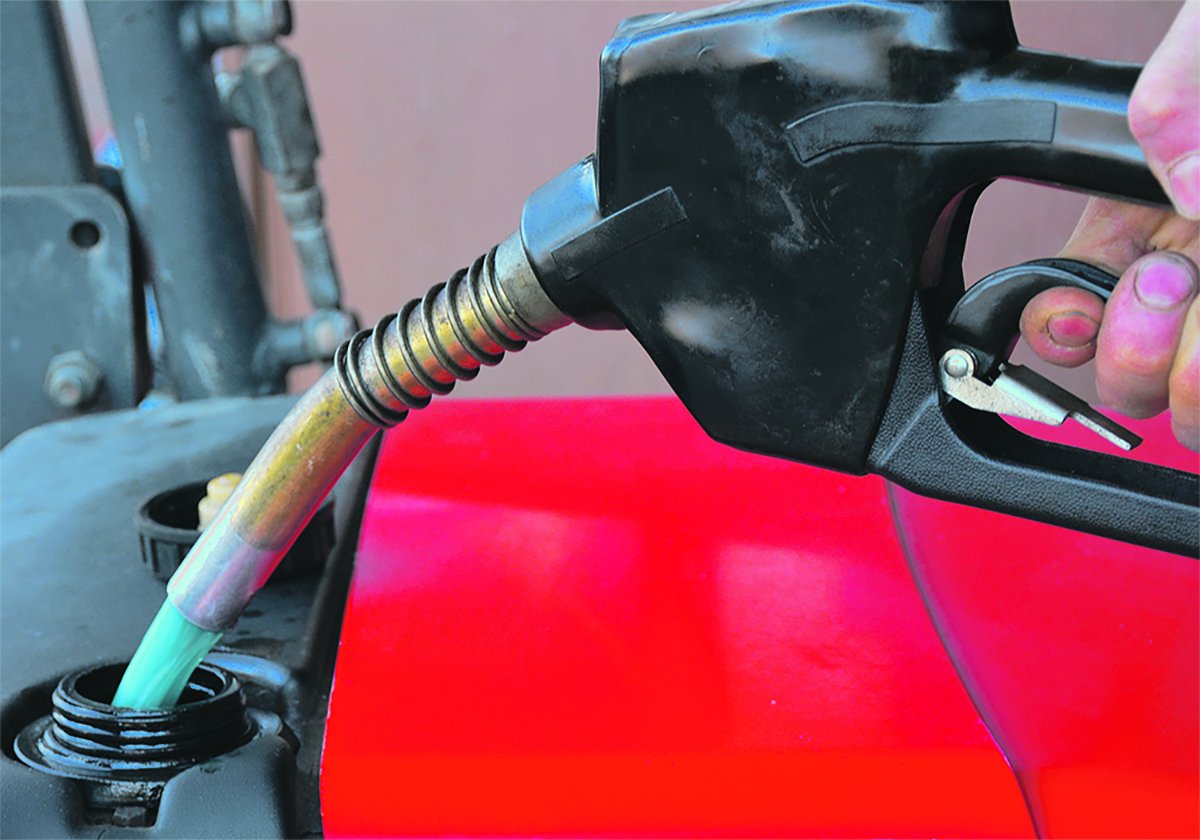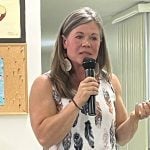CAROLINE, Alta. – Alberta farmers could receive cash for reducing greenhouse gases once the provincial government works out details on how to regulate carbon markets.
Carbon trading will be allowed in Alberta by July 1, said Karen Haugen-Kozyra of Climate Change Central, a provincial agency that examines weather patterns and the effects of pollutants on the environment.
According to the Alberta Climate Change and Emissions Management Amendment Act, companies that exceed 100,000 tonnes of greenhouse gas emissions a year must reduce their emissions by 12 percent starting in July.
Read Also

Alberta may eliminate marked fuel
Alberta may soon stop selling dyed gasoline and diesel.
Companies unable to immediately comply will have two options:
- They may be required to pay $15 per each tonne of carbon emissions over the 12 percent reduction target into a technology fund.
- They could also invest in Alberta-based offset projects outside their operations. That could mean forming deals with farmers and others in agriculture in which the companies help pay for projects that reduce emissions and receive credit for it.
Agriculture could remove 10 megatonnes of emissions if aggressive actions were taken, according to Haugen-Kozyra.
“When we started tilling the Prairies, we lost probably 30 to 40 percent of that carbon, and now as our emissions inventory tells us nationally, we are starting to put that back through better management,” Haugen-Kozyra told the Rocky Riparian Group meeting in Caroline.
In Saskatchewan, 2,274 farmers recently received an interim payment of $9.3 million to share based on the acres each contracted.
A Regina company, C-Green Aggregators Ltd., signed up 5.1 million acres for which farmers received retroactive payments for carbon credits on land under minimum tillage from 2003-06.
C-Green sells farmers’ carbon credits on the Chicago Climate Exchange to companies that are unable to meet emission requirements. The company has operated only in Saskatchewan so far, but has approval to sell in Manitoba and Alberta and is offering contracts for the years up to 2010.
Based on 2004 figures, it is estimated that agriculture contributes about seven percent of the total emissions in Canada.
Under Alberta’s plan, pollution reducing projects that may quality for offset payments could include zero tillage programs, composting, covering hog farm lagoons, planting more trees or replacing fossil fuels with bioenergy.
As well, the projects must take place in Alberta and may be back dated to January 2002.
It is uncertain how the program will measure smaller farm practices that contribute to greenhouse gas reductions, such as a cow using a nose pump and thus reducing energy consumption.
Farm pollution-reduction projects may have to be pooled to realize high enough reductions for outside companies to show an interest.















